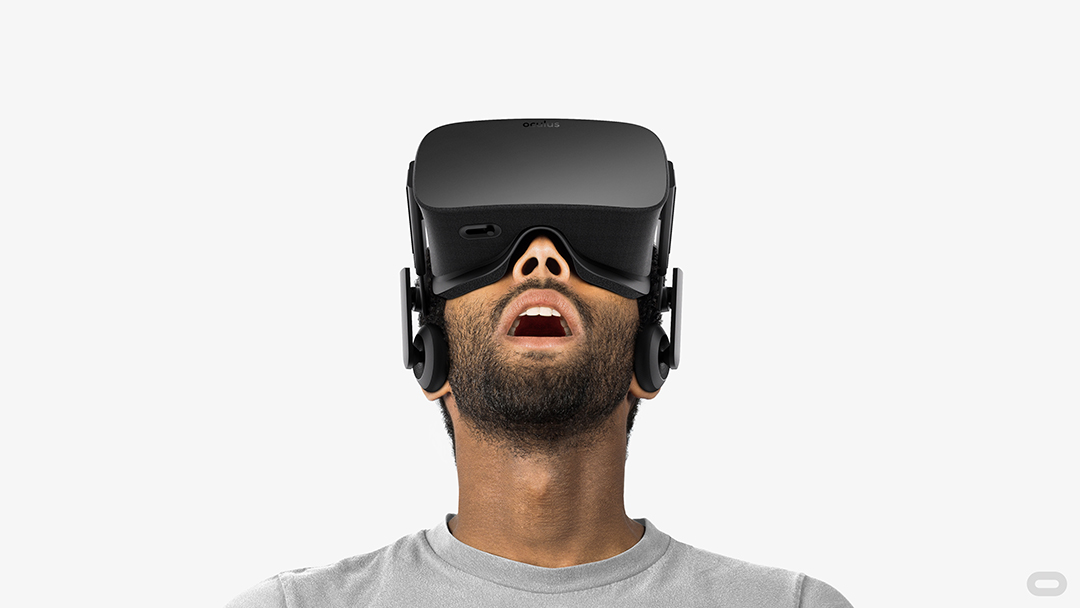Oculus Rift doubles down on gaming, but it's a double-edged sword
Games are where Rift's head is at

Oculus Rift is doubling down on gaming.
That's the resounding takeaway from Oculus' pre-E3 event this week, where, in typical E3 press conference fashion, made-for-VR game after made-for-VR game marched across the stage.
Just how committed is Oculus to gaming? In addition to partnering with Microsoft and a number of well-known game studios, the company is putting its money where its mouth is and pledging more than $10,000,000 to help indie developers create virtual reality titles.
CEO Brendan Iribe made it abundantly clear: Oculus is committed to making the Rift a legit gaming peripheral, replete with a strong game lineup all its own.
While beating the gaming drum days before the biggest gaming event of the year makes perfect sense, there's an earnestness to Oculus' message I hadn't seen until Thursday. Though it gives purpose to the Rift and helps convince developers that it's worth creating games for the headset, it's also a message that may prove hard for non-gamers to swallow. Worse yet for Oculus, it may ultimately keep them from buying one.
Mixed messages
I interviewed Iribe at GDC 2014, and here's what he said about Rift at the time:
"It's going to go far beyond just games. We really believe the ultimate application for this is actually social communications. That's where it's long-term going to go."
Get daily insight, inspiration and deals in your inbox
Sign up for breaking news, reviews, opinion, top tech deals, and more.
He described a scenario where I could be interviewing him in San Francisco while he was home in Irvine, Calif., and we would feel like we were in the same room together - until he stuck his hand out and through the virtual image of me.
"[W]hen we hit that, and we'll hit it soon ... it can fundamentally change communication," he said at the time. "Billions of people communicate, and want communication devices, so that's where we see it going."
To be sure, Iribe hasn't forgotten about the Rift's non-gaming applications, just perhaps de-prioritized them. He told Re/code's Eric Johnson after Thursday's event the company wants to encourage non-game developers, but Oculus is "letting the ecosystem right now take care of all the non-gaming [content], and there's a huge amount of it out there."
He noted Oculus itself is "really focused on gaming."
Projects like Oculus Story Studio illustrate the company's non-gaming interests, and it hasn't chucked away that social interaction element either. Oculus Founder Palmer Luckey, an Oculus Touch controller in each hand, spoke of giving another player in your virtual world a thumbs up, the ultimate human-to-human gesture.
Compatibility with Windows 10 and Xbox also suggest non-gaming experiences will come to the Rift (how exciting would Microsoft Office VR be?), though Xbox One game streaming and the bundled controller are the ties that bind, at least for now.
Oculus is clearly still (somewhat) interested in the Rift becoming more than "just" a gaming device, but for right now (and perhaps up to and after its Q1 2016 launch), gamers are its target audience.
A quote to illustrate this from Thursday:
"The Rift has always been about delivering the technology that unlocks true next generation gaming," said Nate Mitchell, vice president of product at Oculus, before he introduced the Oculus Home UI.
He continued: "We've designed the Rift's software and user experience from top to bottom for gamers."
A good day, for some
Going this hard after gaming isn't a bad approach, especially given the Rift's serious PC requirements, but it may be shortsighted and could ultimately do more harm than good.
For Rift to become more than a niche product, it needs a killer, non-gaming app. As one TechRadar staffer said, there's excitement around virtual tourism, but will people dismiss the viewer "as a gimmicky add-on for gamers" before it takes them to the Colosseum, if ever?
Facebook can't be that killer app ... not for the price.
With the focus Oculus is putting on gaming, Rift could easily land in the "that's cool, but not for me" pile, if some haven't tossed it in there already.
Rift already has two huge things going against it: the souped-up PC required to run smooth VR experiences and a cost of around $1,500 (viewer + PC).
"It sounds like a lot, but it seems most diehard adopters will already have a nice rig and may just need to upgrade a few parts here and there - though those without a decent PC are out of luck," wrote Wearables Editor Lily Prasuethsut in discussing the price [bolding my own].
The upside of devices like Gear VR (which Oculus helped develop) is that you only need a viewer and your smartphone to run apps and games. HoloLens isn't free of the PC yet, but its holograms are of all stripes and make even the most mundane tasks, like fixing a broken sink, way cooler.
Oculus is, somewhat necessarily, positioning the Rift as an amazing gaming peripheral that will deliver immersive experiences unseen before, an enticing pitch to gamers who are always looking to be on the cutting edge and take their gaming to the next-gen level.
It also sounds incredible to non-gamers, but peel back the hype and they're looking at an expensive gadget, a system they likely don't have nor want to invest in and content that isn't made for them.
By the time Oculus starts to change its message - if ever - it may be too late to win those non-gamers over. It could be relegated to niche-dom, and that'd be shame.
Michelle was previously a news editor at TechRadar, leading consumer tech news and reviews. Michelle is now a Content Strategist at Facebook. A versatile, highly effective content writer and skilled editor with a keen eye for detail, Michelle is a collaborative problem solver and covered everything from smartwatches and microprocessors to VR and self-driving cars.
